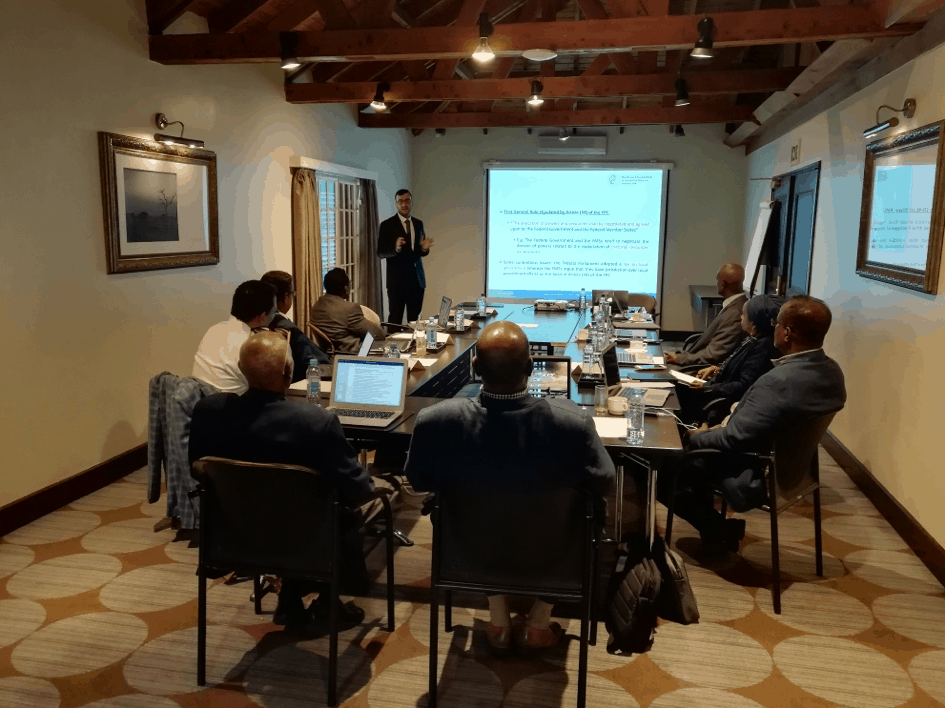Max Planck Foundation conducts 2nd Training-of-Trainers Workshop for Decentralisation and Federalism Advisors in Somalia
From 26 to 29 June 2019, the Max Planck Foundation conducted the second training-of-trainers workshop for Somali Technical and Legal Advisors in Nairobi, Kenya in the framework of the project “Capacity Building and Legal Advice on Political Decentralisation and Federalism in Somalia“.
The main topic of the workshop was the compatibility of Federal Member State Constitutions with the (federal) Somali Provisional Constitution of 2012. From 2013 to 2016 four Federal Member State Constitutions were adopted in Somalia by the Federal Member States of Jubaland (2013), South West State (2014), Galmudug (2015) and Hirshabelle (2016). Just as the even older State Constitution of Puntland, the Federal Member State Constitutions are not fully in compliance with the (federal) Somali Provisional Constitution of 2012. So as to facilitate the necessary harmonisation process, the Foundation has developed a comprehensive study analysing all five Federal Member State Constitutions in terms of their compatibility with the (federal) Somali Provisional Constitution of 2012. The study identifies a number of issues ranging from differences in terminology to open regulatory contradictions. The main findings of this study were presented to the Somali Technical and Legal Advisors of the Max Planck Foundation in the framework of this workshop, so as to inform them about these issues and to receive further input and feedback on the study.
Furthermore, in the framework of the workshop topic “Federal Member State Constitutions from a Comparative Perspective”, the scope of state constitutions and the mechanisms of how their compatibility with the federal constitution is ensured in other federal systems was discussed. As usual, this was addressed through a substantive presentation on the subject matter, followed by a working group assignment allowing the participants to apply their newly gained knowledge. In the ensuing discussions the presentation as well as the working group assignment were adjusted according to the feedback and the input received by the Somali Technical and Legal Advisors. The adjusted workshop materials will now help them in their trainings on this topic for project partners in Somalia and Somaliland.

